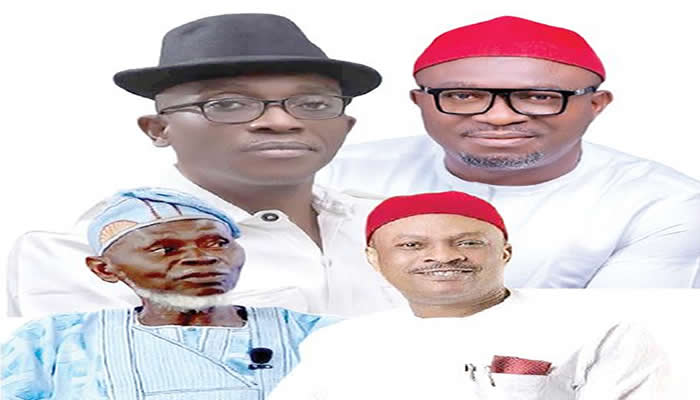The sanctity of Supreme Court pronouncements is being eroded by a growing trend of post-judgment spin, where political parties manipulate and interpret rulings to fit their narratives, irrespective of the actual legal outcome. This practice, increasingly prevalent in Nigeria, transforms the highest court into a political pawn, undermining judicial integrity, democratic principles, and public trust in the rule of law. The recent cases involving the Peoples Democratic Party (PDP) and the Labour Party (LP) exemplify this disturbing trend, highlighting the potential for chaos and confusion when judgments are subjected to partisan interpretations.
The PDP’s internal dispute over its national secretaryship, culminating in a Supreme Court ruling, illustrates the problematic nature of post-judgment spin. The Court aimed to resolve the conflict between Senator Samuel Anyanwu and Sunday Udeh-Okoye, but instead of providing clarity, the judgment fueled further discord. Both factions claimed victory, issuing conflicting statements and deepening the confusion. The Court’s decision, which focused on jurisdictional issues and the internal nature of party affairs, was manipulated by each side to bolster their claims, leaving the PDP leadership in disarray and demonstrating how a supposedly definitive ruling can be twisted to serve opposing agendas. This incident highlights the vulnerability of the judicial process to political maneuvering and the urgent need for clearer, more enforceable judgments.
Similarly, the Labour Party’s leadership tussle, involving Julius Abure and Senator Nenadi Usman, became further entangled after a Supreme Court intervention. The Court, addressing jurisdictional questions, set aside lower court decisions recognizing Abure’s leadership. This decision, however, was met with contrasting interpretations, with both Abure and Usman claiming victory. Abure argued the ruling affirmed the party’s internal mechanisms for leadership selection, while Usman portrayed it as a triumph for her caretaker committee. The conflicting narratives further fractured the party, showcasing how the manipulation of legal pronouncements can exacerbate existing divisions and obstruct any path toward resolution. The resulting confusion highlights the danger of politicizing judicial decisions and the need for parties to respect the true intent and scope of rulings.
These examples demonstrate a pattern of deliberate misinterpretation of Supreme Court judgments, raising concerns about the future of Nigerian democracy. Legal experts and political analysts warn that this practice erodes public trust in the judiciary. If politicians continue to treat the court as a propaganda tool, judgments will lose their weight, creating a climate of legal uncertainty and undermining the rule of law. The judiciary’s authority is diminished when its pronouncements are routinely contested and reinterpreted by partisan actors, highlighting the need for the courts to assert their authority and enforce compliance with their rulings.
Experts suggest judges should strive for unambiguous language in their judgments to minimize room for misinterpretation. Furthermore, they emphasize the responsibility of lawyers to accurately advise their clients on the implications of rulings, preventing deliberate distortion of judicial pronouncements for political gain. The focus should be on respecting the court’s authority and upholding the rule of law, not exploiting legal technicalities for political advantage. Clearer judicial pronouncements, coupled with ethical legal counsel, are critical to preventing such manipulations and preserving the integrity of the judicial system.
The trend of post-judgment spin poses a significant threat to Nigeria’s democratic future. It undermines the principle of judicial finality, fuels political instability, and erodes public trust. To safeguard the integrity of the judicial system and the rule of law, it is imperative that judgments are respected, accurately interpreted, and enforced. Otherwise, the judiciary risks becoming merely another battleground for political point-scoring, further weakening public faith in the democratic process. Addressing this challenge requires a collective effort from the judiciary, the legal profession, and political actors to prioritize the rule of law and restore respect for the sanctity of judicial pronouncements.














